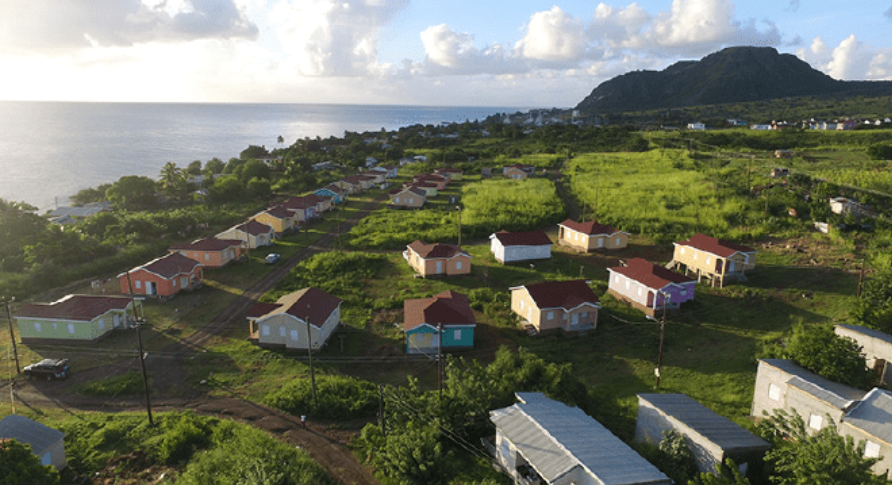After 25 years, I still get excited every time I have the opportunity to meet an immigration lawyer or consultant, and explain to them what we do. I particularly love helping a practitioner add a new service that they can offer their clients. Last year I wrote a short article about why Canadian immigration professional should be offering Citizenship by Investment (CIP) to their customers. That article still holds as true today as it did back then.
- Revenue diversification and expanding your business
- Meeting the needs of today’s wealthy clientele
- Delivering fast results to your clients
- Simple application process, with high approval rates
- And, importantly, if you don’t, someone else will!!!
“A client might come to you at first on a Canadian immigration matter like a student visa application. Well, when the time comes around that this same client comes to you looking for a second passport, if you can’t assist him, you can be sure he will continue looking until he finds someone who can.”.
This past year we have seen a huge year over year increase in practitioners processing their first CIP applications. And those practitioners are seeing the results of their clients’ investments. Working with these practitioners is always a great experience for me, and it reminds me of the many differences and similarities between Antigua Citizenship by Investment and Canadian immigration.
A few things in common:
1) Enshrined in law. In Antigua & Barbuda, the CIP and the selection of applicants, is enshrined in a solid legal framework, just as the selection of immigrants is in Canada.
The Minister of Immigration, Refugees and Citizenship Canada (IRCC) is responsible for the Citizenship Act and shares responsibility with the Minister of Public Safety for the Immigration and Refugee Protection Act. Through the delivery of immigration programs spelled out in the Immigration and Refugee Protection Regulations, IRCC selects foreign nationals as permanent and temporary residents, offers protection to refugees, and develops the country’s admissibility policy.

In Antigua & Barbuda, the CIP was established following parliamentary assent of the country’s Citizenship by Investment Regulations. The administration of these regulations, as well as the processing of all CIP applications, are the responsibility of the Citizenship by Investment Unit (CIU). The CIU’s authority stems from the country’s Citizenship by Investment Act of 2013.
2) Robust due diligence. Fast processing and high approval rates, does not mean that applicants to Antigua’s CIP do not undergo due diligence. To the contrary, as is the case for would-be immigrants to Canada, all CIP applicants over the age of 18 must submit valid police clearances. Furthermore, in Antigua, extensive background checks are completed on all applicants with the assistance of global police networks and private security firms.
3) Internationally Recognized Travel Documents. The Canadian permanent resident card is an internationally recognized piece of ID, and for permanent residents, a required document in order to travel back to Canada.
There is no PR Card for applicants in the Antigua & Barbuda Citizenship by Investment Program. Once approved, they will receive their internationally recognized passport. This passport allows them to travel freely around the world – sometimes requiring a visa in advance (for example, when travelling to Canada or the USA), but for 165 countries around the world, including the Schengen area, the UK, Ireland, Hong Kong, Singapore, India, and many more, without needing to apply for a visa in advance.

4) These programs are designed to meet the needs of your customers. People choose to immigrate to Canada for many reasons. Most commonly for the quality of life, and the education system for their children. For business people, it might be for work or investment opportunities. There are an infinite number of reasons, and every applicant’s story is different. Your job as an immigration practitioner is to understand those needs, and find the right solution for them.
Applicants to the Antigua & Barbuda Citizenship by Investment Program have needs too, and for them, this is the right solution.
- The desire to travel more freely;
- Tax planning or fiscal strategy opportunities;
- Their own nationality and passport have some restrictions;
- A second citizenship and passport is the insurance policy that an insurance company can’t sell - for many, its the Plan B for their families in case of instability and/or threats in their own country.
Whatever the reason, the CIP was designed to meet the needs of a certain individual. And if you as an immigration practitioner and global mobility specialist, can’t meet that need, they will find someone else who can.

5) As a practitioner, you can make money from offering this service. Many of our immigration partners have made fantastic careers for themselves by offering immigration services. Adding the Antigua & Barbuda Citizenship by Investment Program to the services you offer, is a great way to diversify your revenue streams and grow your business. We offer industry-leading commissions on all of the investment options in Antigua & Barbuda.
A few key differences:
1) Citizenship vs residency. Canadian legislation does not allow for a direct path to Canadian citizenship for foreign nationals. In order to obtain Canadian citizenship, applicants must first apply for permanent residence, and only after residing physically in Canada for three years, can they apply for nationality.
By contrast, Antigua & Barbuda’s legislation allows foreign nationals to obtain Citizenship status immediately, without first becoming permanent residents or residing in the country. This is because of specific wording in the Citizenship by Investment Act, which allows a foreign national to make a prescribed investment and “be registered under the provisions of the Citizenship Act as a citizen of Antigua and Barbuda”.
Once conferred with citizenship, applicants will be granted five year passports, and be able to access 165 countries without the requirement for applying for a visa in advance.
2) Eligibility Criteria vs Reasons for Exclusion. Canadian immigration programs tend to have eligibility requirements. Depending on the program, these requirements could be centered around language ability, minimum education requirements, previous experience, minimum net worth, etc.,… And even if in your opinion your client meets those requirements, the ultimate decision lies with Immigration Canada to decide. For you, and your clients, this creates uncertainty.
By contrast, there is no Definition of who can apply for Citizenship by Investment Antigua & Barbuda. There are no minimum requirements to be met such as net worth, language skills, work experience, etc. that the applicant needs to demonstrate. In fact, rather than define who is eligible for the CIP, the laws in Antigua & Barbuda define who is NOT eligible for the CIP.

Refusals are rare in the CIP, because from the onset, we know if a client is not eligible. You aren’t going to waste your time on an application that doesn’t go anywhere, and you aren’t going to end up wasting the time of your client.
3) Who are the principal applicant’s dependents? In Canada, the definition is quite narrow. A principal applicant can be accompanied by their spouse, their unmarried children under the age of 22, and any child who is 22 or older but dependent on their parent(s) due to a physical or mental condition.

One of my favourite things to explain to a Canadian immigration practitioner is that in Antigua & Barbuda, an applicant can include their spouse, their children up to 30 years old, their siblings, their spouse’s siblings, their parents and grandparents, and even their spouse’s parents and grandparents. Indeed, five generations can be included as dependents!
4) Processing times. Immigration backlogs have unfortunately dominated the headlines in Canada for the last several years. Processing times have exploded in all categories.
Over the last several years, the Antigua & Barbuda Citizenship by Investment Unit invested wisely into processing capacity – IT infrastructure, increased staff, and bigger budget. While processing times have increased a little over the last year, we are still seeing CIU decisions issued in about three months. As an immigration practitioner, one of the best moments is the client life cycle is when you bring them the desired results. The smile and genuine appreciation from a client is an extraordinary feeling. It is also when they are most likely to refer their friends and family to you. Now imagine completing that cycle within 3-6 months, and reaping those rewards so quickly. It is easy to see how one can process their first CIP application today, and have a growing CIP business inside of one year.
How to get started
If you are not already offering Citizenship by Investment to your clients, contact us to learn how we can work together.
We recognize that doing anything for the first time can seem daunting. The hardest thing can be knowing where to start. At ClientReferrals, our team is uniquely focused on serving our network of immigration lawyers and consultants, to provide you with the tools and services you need to get your clients approved. We can:
- Train you, your staff and sub agents on the different aspects of the CIP
- Assist you in the design and development of your marketing material, and even provide you with templates;
- Join you on your first sales calls with potential clients;
- Work with you to review your clients’ documents and prepare their applications.
In short… A to Z services, so you have the confidence to add Citizenship by Investment to the list of your services, and can take the first steps to building this into your practice.




